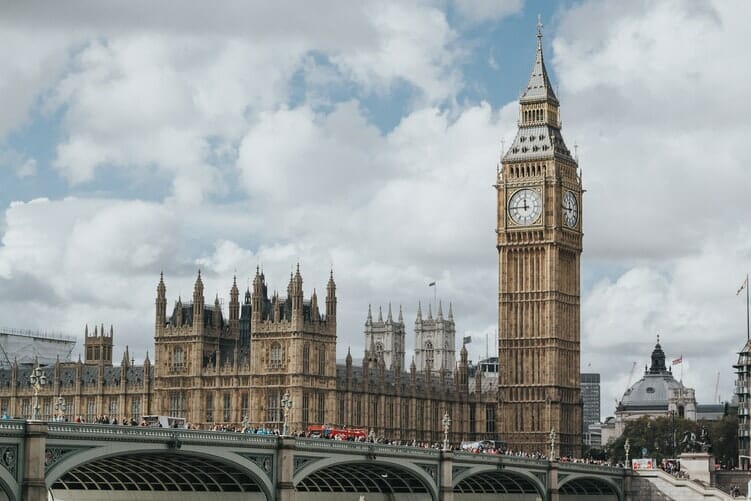Pursuing a Master’s in the UK is a dream for many Indian students seeking globally recognized education, cutting-edge research, and career opportunities. The UK is renowned for its quality education, and earning a degree in the UK is highly valued worldwide. With world-class universities, diverse course options, and the 2-year Post Study Work (PSW) visa, the UK remains one of the top destinations for postgraduate studies.
This guide offers a comprehensive overview for Indian aspirants, covering top universities, popular courses, tuition fees, eligibility, scholarships, cost of living, and career outcomes all tailored for 2025 applicants.
Key Facts About Studying MS in UK for Indian Students
Before we dive deep, let’s look at the essential information at a glance. This table summarizes what you need to know about getting your masters in UK.
Feature | Details |
| Typical Duration | 1 Year (Full-time) |
| Average Tuition Fees | £15,000 - £35,000 (approx. ₹15 Lakhs - ₹35 Lakhs) |
| UK Cost (Total Estimated) | £25,000 - £45,000 (approx. ₹25 Lakhs - ₹45 Lakhs, including tuition and living expenses) |
| Primary Intakes | September (Fall), January (Winter) |
| Post-Study Work Visa | Yes, 2 years (Graduate Route Visa) |
| Popular Specializations | Data Science, Business Analytics, Computer Science, Finance, Engineering, Law |
| English Test Req. | IELTS (6.5+), TOEFL (90+), PTE (62+) - waivers possible |
Best UK Universities for Masters in 2025
While rankings are a good starting point, the “best” university is the one that fits your specific academic and career goals. UK universities offer a wide range of master's degrees across various subjects, allowing students to find programs that match their interests and ambitions. For example, a student interested in engineering might choose a university renowned for its engineering subjects or specialized master's degrees in that field. Here’s a look at different tiers of institutions popular among Indian students.
Best 4 UK Universities: Oxford, Cambridge, Imperial & UCL
These universities are consistently ranked among the top 10 in the world.
- University of Oxford: The oldest university in the English-speaking world, offering unparalleled education in humanities, social sciences, and medicine. Oxford is also renowned for research-focused degrees such as the Master of Philosophy (MPhil) and is highly regarded for its programs in political science.
- University of Cambridge: A global leader in science, engineering, and technology with a rich history of innovation. Cambridge is especially known for its research-focused postgraduate qualifications, including the Master of Philosophy (MPhil).
- Imperial College London: A science-based institution at the forefront of STEM research and application.
- University College London (UCL): Known as ‘London’s Global University,’ it offers a vast range of courses and has a highly diverse student body.
Top Universities in the UK for Your Master's Degree
Choosing the right university is the most critical step in your study abroad journey. Below, we've compiled a list of the top-ranked universities for master's programs, followed by some excellent, more affordable options to consider.
University | QS World Ranking 2025 | THE World Ranking 2025 | Estimated PG Acceptance Rate |
| University of Oxford | 3 | 1 | 14% |
| University of Cambridge | 5 | 5 | 17% |
| Imperial College London | 2 | 9 | 15% |
| University College London (UCL) | 9 | 22= | 38% |
| The University of Edinburgh | 27 | 29 | 46% |
| The University of Manchester | 34 | 53= | 39% |
| King's College London | 40 | 36= | 13% |
| London School of Economics (LSE) | 50 | 50= | 25% |
| University of Bristol | 54 | 78 | 67% |
| The University of Warwick | 69 | 106 | 32% |
Note: Rankings provide a general measure of a university's reputation, but you should also consider course-specific rankings, faculty expertise, and location. Acceptance rates are estimates for postgraduate programs and can vary significantly based on the specific course's competitiveness.
Affordable Universities in the UK for Masters
A world-class education in the UK doesn't always have to come with the highest price tag. Many excellent universities offer high-quality master's programs at a more accessible tuition fee. Here are some of the most popular affordable universities for Indian students.
University Name | Annual Tuition Fee (GBP £) | Annual Tuition Fee (INR ₹) |
| Teesside University | £15,000 - £17,000 | ₹15.9 Lakhs - ₹18 Lakhs |
| University of Chester | £15,000 - £15,200 | ₹15.9 Lakhs - ₹16.1 Lakhs |
| University of Bolton | £14,500 - £16,000 | ₹15.4 Lakhs - ₹17 Lakhs |
| University of West London | £16,000 - £18,500 | ₹17 Lakhs - ₹19.6 Lakhs |
| Staffordshire University | £14,500 - £16,750 | ₹15.4 Lakhs - ₹17.8 Lakhs |
| Leeds Beckett University | £15,000 - £16,500 | ₹15.9 Lakhs - ₹17.5 Lakhs |
| University of Cumbria | £13,575 - £16,000 | ₹14.4 Lakhs - ₹17 Lakhs |
Note: The tuition fees above are estimates for the 2025-2026 academic year for standard classroom-based master's programs and were verified via official university websites or reputable education portals. Fees for lab-based or clinical courses may be higher. The currency in the UK is the Pound Sterling (£), not the Euro (€). The INR conversion is based on an exchange rate of 1 GBP = 106 INR and is subject to change.
Cost of Studying Masters in UK: Tuition, Living, and Visa Fees (2025-2026)
A clear understanding of the financial commitment is crucial. The cost of a masters in UK for Indian students can be broken down into three main parts.
Students who are interested in reducing their expenses should also explore available UK scholarships.
Tuition Fee by Course Type
- Humanities & Arts: Typically the most affordable, ranging from £14,000 - £22,000 per year.
- STEM (Science, Tech, Engg., Math): These courses involve lab work and are more expensive, ranging from £18,000 - £35,000 per year.
- Business & Management (MBA): MBA programs are the most premium, with top schools costing anywhere from £30,000 to over £60,000.
Cost of Living: London vs Other Cities
Your living expenses will be your second-largest expenditure. The UK government requires you to show proof of funds of £1,334 per month for courses in London and £1,023 per month for courses outside London.
Expense (Monthly Average) | Inside London | Outside London |
| Accommodation | £800 - £1,200 | £550 - £800 |
| Food & Groceries | £200 - £250 | £150 - £200 |
| Transport | £100 - £150 (TfL Travelcard) | £50 - £80 |
| Utilities & Bills | £80 - £120 | £60 - £100 |
| Total (Approx.) | £1,200 - £1,700 | £800 - £1,200 |
Pre-Arrival & Visa-Related Expenses
- UK Student Visa Fee: £490 (approx. ₹51,000)
- Immigration Health Surcharge (IHS): £776 per year (approx. ₹81,000)
- Flight Ticket: ₹40,000 - ₹70,000 (one-way, depending on booking time)
- Miscellaneous: IELTS/TOEFL fees, application fees, etc. (approx. ₹30,000)
Total Estimated Budget in Indian Rupees (₹)
For a one-year master’s program that can be completed within that timeframe, an Indian student should budget between ₹25 Lakhs and ₹45 Lakhs, all-inclusive. This range can be higher or lower depending on your choice of university, course, and lifestyle.
Top Master's Courses in the UK with High Job Prospects 2025
Choosing the right course is vital for your career success. A master's program in the UK equips you with advanced knowledge and specialized skills needed to excel in your chosen field. Here are some of the most sought-after master’s specializations in the UK right now.
- MSc Data Science & Artificial Intelligence: With the tech boom, professionals who can analyze data and build AI models are in extremely high demand across all sectors. Graduates can pursue jobs such as data scientist, machine learning engineer, or AI specialist in the global workplace.
- Master’s in Business Analytics (MBA & MSc): Companies need experts who can translate data into strategic business decisions. This field offers fantastic career prospects and allows you to pursue roles like business analyst, data consultant, or operations manager.
- MSc Computer Science & Cybersecurity: The backbone of the digital world. A master’s program in this field from the UK provides in-depth knowledge and opens doors to high-paying tech jobs globally, including cybersecurity analyst and software developer positions.
- Master of Finance & FinTech: London is a global financial hub. A degree in finance or the emerging field of FinTech places you at the center of the action, preparing you to pursue jobs such as financial analyst, investment banker, or fintech product manager.
- Engineering (Mechanical, Civil, Electrical): UK universities offer highly specialized and practical engineering programs that are respected worldwide. These master's programs help you gain the knowledge and expertise needed for advanced engineering roles in your chosen field.
- Law (LLM) and International Relations: For students looking to build a career in international law, diplomacy, or policy, the UK offers some of the world’s best programs. Graduates can pursue jobs in legal practice, government, or international organizations, enhancing their impact in the modern workplace.
Eligibility Criteria for Master’s in UK for Indian Students
Meeting the eligibility criteria is the first step. Admission requirements and entry requirements for a master's degree in the UK typically include academic qualifications such as a bachelor's degree. Qualifications may also include standardized test scores and language proficiency. Here’s what UK universities typically look for from Indian students.
Academic Requirements & UK Grade Conversion
Most UK universities require an undergraduate degree equivalent to a UK Bachelor's (Honours). They use a classification system:
- First-Class: Equivalent to 70% or higher in India.
- Upper Second-Class (2:1): Equivalent to 60-69%. This is the most common requirement.
- Lower Second-Class (2:2): Equivalent to 50-59%. Some universities accept this for certain courses.
English Language Proficiency
You must prove your English proficiency. The most common tests are:
- IELTS Academic: Overall 6.5, with no band less than 6.0.
- TOEFL iBT: Overall 90, with minimum scores in each section.
- PTE Academic: Overall 62, with no score below 59. Some universities may waive this requirement if you have a high score in English in your Class 12th board exams (e.g., above 75% from CBSE/ISC boards).
Do You Need GRE/GMAT?
The good news is that for most UK master's programs, GRE/GMAT is not required. They are primarily needed for top-tier MBA programs and some highly competitive finance or economics courses at universities like LSE, Oxford, and Cambridge.
Work Experience: When is it Mandatory?
For most MSc and MA programs, work experience is not a requirement. However, for an MBA, it is almost always mandatory, with universities typically requiring a minimum of 2-3 years of full-time, relevant work experience.
How to Apply for a Master’s in UK: Step-by-Step Guide (2025 -2026 Intake)
A well-planned application strategy is key. Follow these steps for a smooth process.
Step 1: The Ideal Timeline (Sep, Jan, April Intakes): For the main September intake, you should start your research and preparation by September of the previous year. Aim to have your applications submitted between October and January.
Step 2: Crafting a Winning Statement of Purpose (SOP): This is your chance to tell your story. Your SOP should cover your academic background, your motivation for choosing the course and university, and your future career goals. It must be authentic, well-structured, and tailored to each university.
Step 3: Securing Powerful Letters of Recommendation (LORs): You’ll typically need two LORs. Ask your undergraduate professors or a work supervisor who knows you well. Give them ample time and provide them with your SOP and CV so they can write a strong, relevant recommendation.
Step 4: Building a Professional Academic CV: Your CV should be concise (1-2 pages) and highlight your academic achievements, projects, internships, and any relevant work experience or skills.
Step 5: Submitting Your Application: Some universities use the central UCAS postgraduate portal, but most accept direct applications through their own websites. Double-check all deadlines and document requirements. For research-based master's programs such as MRes or MPhil, you may also need to submit a research proposal or an outline of your intended thesis as part of your application.
UK Student Visa Process for Indian Students
Once you receive your offer letter, the next big step is the visa.
- Understanding the Points-Based System: You need to score 70 points to get a student visa. 50 points are awarded for your Confirmation of Acceptance for Studies (CAS) from the university, 10 for meeting the financial requirements, and 10 for English language ability.
- Securing your CAS: Your university will issue a CAS number once you have accepted an unconditional offer and paid your deposit. This is the most crucial document for your visa application.
- Proof of Funds: You must show that you have enough money to cover your first year's tuition fees plus the required living costs for up to 9 months. The funds must be held in your (or your parents') bank account for at least 28 consecutive days before you apply.
- The Immigration Health Surcharge (IHS): This mandatory fee gives you access to the UK's National Health Service (NHS). You must pay it in full when you submit your visa application.
Scholarships to Study in UK for Indian Students
Don't let the cost deter you. Numerous scholarships can significantly reduce your financial burden.
Prestigious Government Scholarships:
- Chevening Scholarship: The UK government's global scholarship program, fully funded, covering tuition, living expenses, and flights. Highly competitive.
- Commonwealth Scholarship: For students from Commonwealth countries (including India), often covering full tuition and providing a stipend.
University-Specific Scholarships: Almost every UK university offers scholarships for international students based on academic merit. These usually range from £2,000 to £10,000 as a tuition fee discount.
External Scholarships:
- GREAT Scholarships: A joint initiative by the British Council and UK universities, offering a minimum of £10,000 towards tuition fees.
- Felix Scholarships: For academically outstanding students from developing countries to study at Oxford, Cambridge, and SOAS.
- Inlaks Shivdasani Foundation Scholarships: Prestigious awards for Indian students to study at top institutions in the UK, US, and Europe.
Career Benefits of Doing MS in UK for Indian Students
Choosing to study abroad is a significant decision. Many master's degrees in the UK are offered as taught programs, providing structured, classroom-based learning, while others are research-based, allowing for independent study and investigation. Here’s why a master’s degree from a UK university offers an exceptional return on investment for Indian students. A UK master's degree is internationally recognized and can serve as a stepping stone to a PhD program, opening doors to advanced research opportunities and academic career progression.
World-Renowned Academic Excellence and Shorter Course Durations
UK universities are globally respected for their quality of teaching and research. Institutions like Oxford, Cambridge, and Imperial College London are household names, but the excellence extends across the entire Russell Group and beyond. The curriculum is intensive and practical, designed to make you an expert in your field. A key advantage is the duration; most UK master's programs are just one year long, compared to two years in many other countries. This saves you a full year of tuition and living costs and allows you to enter the global workforce much faster.
The Graduate Route: Your 2-Year Post-Study Work Visa Opportunity
The Graduate Route is a game-changer for international students. After successfully completing your degree, you can apply to stay and work in the UK or look for work at any skill level for two years (three years for PhD graduates). This provides an invaluable opportunity to gain international work experience, build a professional network, and potentially transition to a longer-term Skilled Worker visa.
Develop In-Demand Skills for the Global Job Market
A masters in UK is designed in collaboration with industry leaders to ensure graduates possess the skills employers are desperately seeking. You’ll learn to think critically, solve complex problems, and work collaboratively. Whether it's in technology, finance, healthcare, or the creative arts, a UK postgraduate degree is a stamp of quality that is recognized and valued by companies worldwide.
Immerse Yourself in a Multicultural Environment
Studying in the UK means joining a vibrant community of students from over 150 countries. This multicultural exposure is a learning experience in itself. It broadens your perspective, enhances your cross-cultural communication skills, and allows you to build a lifelong global network of friends and professional contacts.
Student Life in UK: Accommodation, Work & Cultural Tips
Your journey doesn't end with admission; it begins.
- Finding Accommodation: Most first-year students opt for university-managed halls of residence. It's a great way to make friends and is often conveniently located. In your second year or if you prefer more independence, you can look for private apartments or shared houses.
- Part-Time Work: As a student, you are allowed to work up to 20 hours per week during term time and full-time during vacations. This is a great way to earn some extra money, gain work experience, and immerse yourself in the local culture.
- Navigating UK Culture and Building a Network: Be open, join university clubs and societies, attend networking events, and connect with people. The UK is a diverse country, and embracing its culture will enrich your experience immeasurably.








